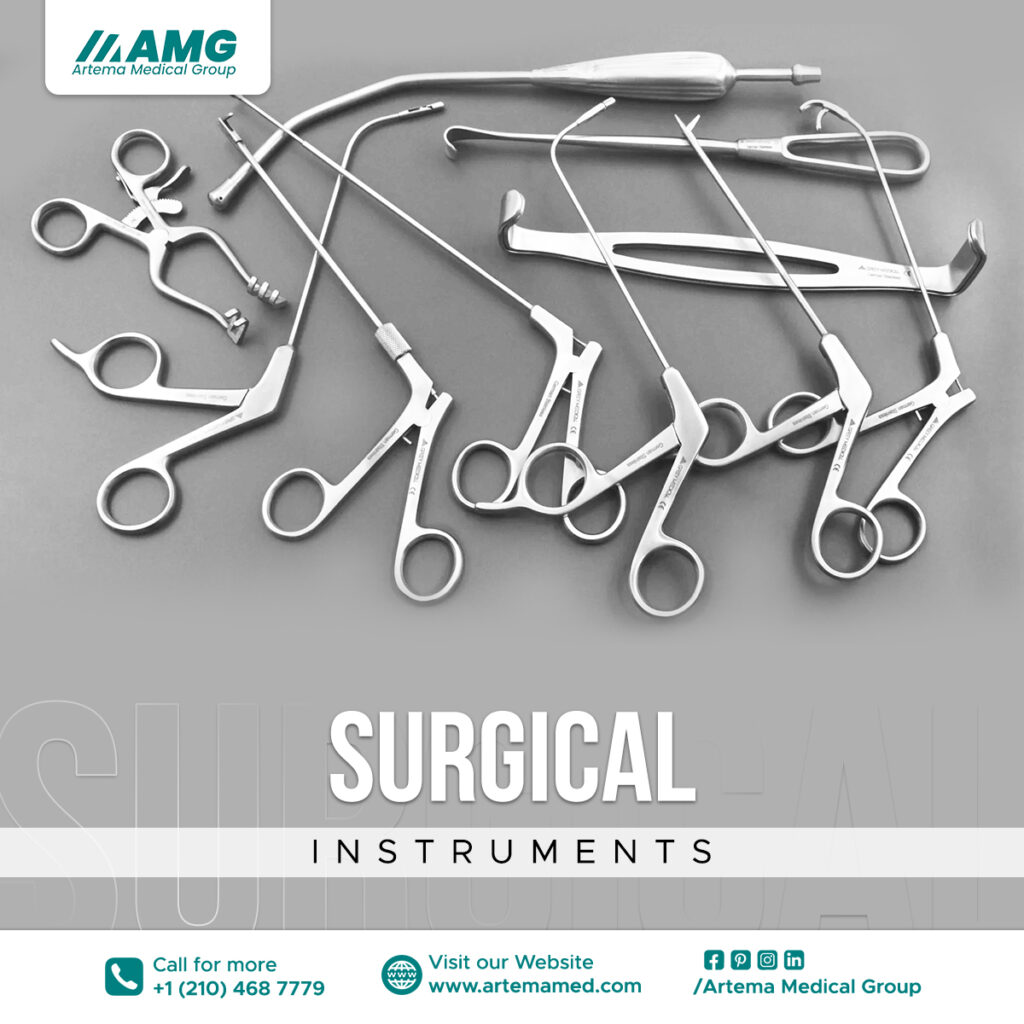
Surgical instruments are essential tools used by surgeons to perform operations safely and effectively. These instruments are designed to help with tasks like cutting, holding, clamping, and suturing tissues. In any operating room, the success of a procedure heavily depends on the quality and precision of these tools. Over time, surgical instruments have evolved, becoming more specialized to meet the growing demands of modern surgery.
The use of surgical instruments is not limited to one area of medicine. They are necessary across various fields, including general surgery, orthopedic surgery, and plastic surgery. However, general surgical instruments are the most commonly used tools, as they are versatile and suitable for a wide range of procedures. These instruments are the backbone of any surgical team, providing support in both minor and major operations.
Types of Surgical Instruments
Surgical instruments can be grouped based on their function. The main types include cutting instruments, grasping or holding tools, retractors, and suturing devices. Cutting instruments such as scalpels and scissors are used to make incisions or remove tissue. They must be sharp and precise to minimize damage to the surrounding areas. Grasping instruments, like forceps, help surgeons hold tissues or objects securely. Retractors are used to keep incisions open and provide better access to the surgical site. Suturing instruments, such as needle holders, help in closing wounds after the procedure.
General surgical instruments usually belong to one of these categories. They are not only useful in specific surgeries but also in routine medical care. Hospitals and clinics often stock these tools in large quantities because of their everyday use.
The Role of General Surgical Associates
General surgical associates play a vital role in ensuring that surgeries go smoothly. These professionals include surgeons, surgical nurses, and technologists who work closely with surgical instruments. Their expertise lies in understanding which instruments to use and when to use them. This teamwork helps prevent errors and improves patient outcomes.
In a typical surgical setting, general surgical associates are responsible for preparing the instruments before surgery. They check each tool for cleanliness and proper function. During the procedure, they hand instruments to the surgeon quickly and accurately. After the surgery, they clean, sterilize, and store the instruments to maintain hygiene and prevent infections. Their attention to detail helps ensure that each tool is ready for the next procedure.
Quality and Maintenance of Instruments
The quality of surgical instruments can affect the success of an operation. Poor-quality tools can lead to complications, including damage to tissues or prolonged healing times. Therefore, hospitals invest in high-grade general surgical instruments made from stainless steel or other durable materials. These instruments are designed to last through many uses without losing their effectiveness.
Proper maintenance is also key. Instruments must be cleaned and sterilized after every use. Even a small amount of residue can lead to infections. General surgical associates are trained to handle these tasks with care. They follow strict guidelines to ensure the instruments are safe for the next procedure.
Regular inspections help identify any damaged or worn-out tools. Instruments with signs of rust, cracks, or dull edges are removed from use. Replacing or repairing these tools helps maintain the overall safety of the surgical environment. Hospitals often work with trusted suppliers who provide reliable surgical instruments and support services.
Modern Advancements in Surgical Tools
The field of surgery has seen many changes, especially with the rise of minimally invasive techniques. These methods use small incisions and specialized tools to perform surgeries with less damage to the body. As a result, new types of surgical instruments have been developed to support these procedures.
Laparoscopic instruments, for example, are used in keyhole surgeries. They include long, slender tools with cameras and light sources to help surgeons see inside the body. Despite being more advanced, these tools still fall under the broad category of general surgical instruments because of their wide application in various procedures.
Robotic surgery is another area that relies heavily on high-quality instruments. In these procedures, the surgeon controls robotic arms equipped with surgical tools. These systems require precise and reliable instruments to ensure patient safety. General surgical associates are trained to assist in these advanced settings, making sure the equipment is set up correctly and functions as intended.
Training and Skills for Handling Instruments
Handling surgical instruments requires skill and experience. General surgical associates receive specialized training to learn how to use each tool correctly. This training includes classroom instruction and hands-on practice. Knowing how to handle instruments reduces the risk of injury to both patients and staff.
Surgeons also need to understand their tools. During their training, they learn about different types of general surgical instruments and how they are used. This knowledge helps them choose the right tool for each task, which is essential for a successful outcome.
Ongoing education is important too. As new instruments are introduced, healthcare professionals must keep up with the changes. Workshops, seminars, and certification programs help general surgical associates stay informed and maintain their skills.
The Importance of Standardized Instrument Sets
To make surgeries more efficient, hospitals often use standardized sets of surgical instruments. These sets include all the necessary tools for a specific procedure. For example, an appendectomy set will have different instruments than a hernia repair set. Standardizing these sets ensures that the surgical team has everything they need without unnecessary tools cluttering the space.
General surgical instruments are a big part of these sets. Because of their flexibility, they are included in many types of surgical kits. Having the right tools in place allows surgeries to proceed without delays. General surgical associates play a key role in organizing and maintaining these sets.
Conclusion
Surgical instruments are a vital part of modern healthcare. From simple scissors to advanced laparoscopic tools, each instrument has a specific role in helping surgeons perform procedures safely and efficiently. General surgical instruments are among the most important, given their broad use across various surgeries. The teamwork of general surgical associates ensures that these tools are handled properly, maintained well, and used effectively in every operation.
With constant advancements in technology and techniques, the role of surgical instruments will continue to grow. Understanding these tools and the professionals who manage them is essential for anyone involved in the healthcare field. Whether you’re a student, a medical professional, or simply someone interested in how surgeries work, knowing more about surgical instruments can help you appreciate the complexity and precision of modern medicine.
More info: Artema Medical






